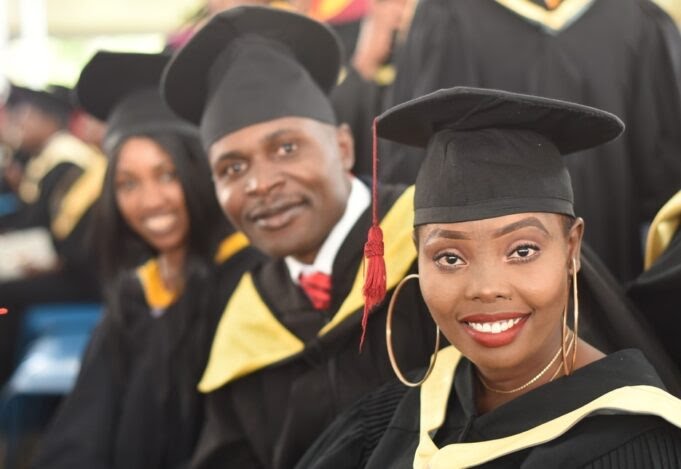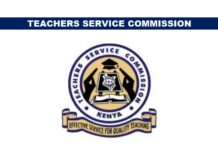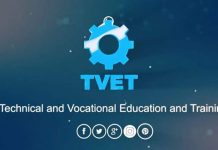
Radical changes in teacher education hits enrollment at TTCs
Shift in policy from P1 to Diploma, high entry grades, tough re-registration guidelines for Teacher Training Colleges, and the nature of new Teacher Education curriculum are key factors that majorly affected the enrollment into TTCs for the past one year.
Teacher Training Colleges (TTCs) across the country have witnessed a decline in the number of trainees by 8.4 percent from 17,938 in 2020 to 16,429 in 2021 owing to the radical changes in teacher education in a bid to match the needs of the Competency-Based Curriculum (CBC).
The revelation is from the Economic Survey 2022 report that further revealed that of the total number of teacher trainees in 2021, the number of upgrade teacher trainees accounted for 59.2 percent while pre-service teacher trainees accounted for 32.0 percent.
The number of teacher trainees in secondary Diploma Teacher Training Colleges (DTTCs) went up by 18.9 percent from 1,218 in 2020 to 1,448 in 2021, mainly on account of an increase in the number of first-year trainees.
The survey indicates that the number of female and male teacher trainees in diploma training institutions increased by 39.2 percent and 2.2 percent, respectively in the review period.
Tough rules on TTCs re-registration
The shift in policy in teacher training between 2019 and 2020 saw the Ministry of Education(MoE) order all TTCs, both public and private, to be registered afresh to reflect their new status of training for the new Diploma course in Primary Teacher Education (DPTE).
The policy only saw about 41 TTCs being authorized to offer the new course, a move that might have locked out some private colleges which were deemed unfit to offer DPTE.
This implied that many TTCs that used to offer Primary Teacher Education Certificate (commonly known as P1) were driven out of business since they did not comply with new rules introduced by the MoE. The situation also contributed to a decline in the enrolment.
According to the MoE guidelines on re-registration, the colleges were expected to offer the training at their premises unlike previously when trainings were organized during the school holidays.
Approved TTCs were to be issued with certificates before February 28, 2021.
High entry grades
Public TTCs did not admit students in 2019 and 2020 for the P1 course due to the change of policy on qualification from certificate (P1 course) to DPTE as the minimum qualification to teach in primary schools, a condition that mainly contributed to the decline in the enrolment in the TTCs.
The policy was meant to improve the quality of teaching in primary schools hence TTCs only admitted pre-service diploma teacher trainees and those upgrading from P1 to diploma in the year under review.
The report of the taskforce on Enhancing Access, Relevance, Transition, Equity and Quality for Effective Curriculum Reforms and Implementation of December 2020 led by Prof. Fatuma Chege directed the MoE to ensure all tutors in pre-service teacher education training colleges are inducted on effective interpretation and implementation of the teacher education curriculum framework and designs.
The taskforce further recommended that MoE should raise the lowest level of Pre-Service Teacher Education (TE) in the country as a Diploma in Teacher Education with the duration at each level taking three (3) years unlike in the previous programme where the duration was 2 years. The entry requirements at various Teacher Education levels were also raised.
The minimum entry requirement for Diploma in Early Childhood Teacher Education (DECTE) was raised to C (plain) in Kenya Certificate of Secondary Education (KCSE) or its equivalent at senior school. Previously, even students with C-(minus) and below were enrolled into this programme.
The minimum requirement for DPTE was raised to C(plain) in KCSE or equivalent at Senior School from the previous C-(minus) in KCSE while the entry grade for Diploma in Secondary Teacher Education (DSTE) and Diploma in Technical Teacher Education (DTTE) has been placed at C+ (plus) in KCSE or equivalent at Senior School.
Nature of new curriculum
The Prof. Fatuma Chege-led committee recommended that the design of the Pre-Service Teacher Education Curriculum be restructured.
According to the report of the taskforce, the Diploma in Teacher Education shall now entail coursework, micro-teaching and a practicum whereby the teacher trainees at the Diploma in Early Childhood Teacher Education (DECT) and DPTE shall be required to teach all subjects offered at the pre-primary and primary levels respectively.
Those doing Diploma in Secondary Teacher Education (DSTE), Diploma in Technical Teacher Education (DTTE) and Diploma in Special Needs Teacher Education (DSNTE) shall specialize.
The move will be crucial in preparing learners to identify their strengths and selection of the pathways to pursue at Senior Secondary Schools (SSS) where the three pathways under CBC are Arts and Sports Science, Social Sciences, and Science, Technical, Engineering and Mathematics (STEM).
According to the taskforce recommendation, the DPTE and DECTE shall take 3,000 hours with the course work being allocated 2,100 hours, Micro-teaching taking a maximum of 300 hours at Year Three (one term), which translate to 30 hours per week; and teaching practice taking 600 hours at Year Three – translating to 30 hours per week or two school terms.
It further notes that there shall be appropriate weighing of courses in the professional courses which shall be allocated 420 hours translating to 42 hours per week content, which entails Year One and Two content plus pedagogy with total allocation of 1,680 hours (translating to 28 hours per week and 280 hours per term).
The professional courses shall largely be similar across all Diploma levels but shall be designed to be applicable to target learners, with courses taking into cognizance relevance, quality and applicability to target learners.
The designs shall consider sequence in terms of introductory, pre-requisites and final courses across professional and content or pedagogy courses.
The new design also requires that the Pre-service Teacher Education Curriculum Designs should capture learner-centered pedagogies at this level, with problem solving, inquiry, projects and collaborative learning receiving emphasis.
The curriculum also requires content and pedagogy to be integrated and pitched above the content of the target level, for instance pre-primary or primary, but with attention to learning areas in the respective curricula for the level.
The placement of trainee teachers in the colleges will be through the Kenya Universities and Colleges Central Placement Service (KUCCPS) in order to allow the teachers get access to Higher Education Loans Board (HELB).
P1 training before
The Kenya Institute of Curriculum Development (KICD) Primary Teacher Education (PTE) of 2004 required that the trainee teachers should undertake 5 core compulsory subjects: English, Kiswahili, Professional Studies, Physical Education, and Information and Communication Technology (ICT).
It also required that in first year, students should study 10 subjects notably: Mathematics, English, Kiswahili, Science, Social Studies and Religious Education, Professional Studies, Creative Arts, Physical Education and ICT.
In second year, students should take five core subjects: English, Kiswahili, Education, Physical Education and ICT; and four subjects in either Option A or B.
Option A comprises of Science, Home Science, Agriculture and Mathematics while Option B comprises of Music, Art and Craft, Social Studies and Religious Education.
Professional studies included the traditional education disciplines such as Foundation of Education (Philosophy, History, Sociology and Comparative Education), Curriculum Studies, Education Psychology including Educational Measurement and Evaluation, and Educational Administration as well as Special Needs Education (SNE), Guidance and Counseling and Legal Issues in Education.
Teaching Practice (TP) was conducted in three sessions; the first during the second term of the six terms in the programme, the second in the fourth term and the third in the sixth term.









